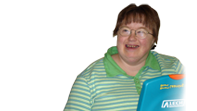AIDD Core - UCEDD Administration
| OR-Oregon Institute on Development & Disability, UCEDD/LEND | |||
| Program Type | UCEDD | Fiscal Year | 2020 |
| Contact | Rhonda Eppelsheimer, MSW | ||
| [email protected] | |||
| Phone | 503-494-2705 | ||
| Project Description | |||
|
GCDRC0234ESD3? The UCEDD in the Institute on Development & Disability of Oregon Health & Science University has a 40-year history in promoting the well being of persons with developmental and other disabilities through training, research and evaluation, community services, technical assistance, information dissemination, and policy development. Its mission is to enhance the well being and quality of life of persons with disabilities and their families. We collaborate with persons with disabilities and their families to develop new knowledge and practices, train leaders, impact communities, and effect broad systems change. Through this collaboration we strive to exemplify accessibility, leadership development, and full societal participation of people with disabilities. The UCEDD's work has focused on the following major areas: Self-Determination, Health, Employment, Community Living, and Transition. Self-Determination for people with disabilities and their families is an overarching tenet of the UCEDD and informs all its work. The UCEDD is currently expanding the scope of its services to include new areas of focus. Adolescent Transition: Since 1960, the number of children and youth with special health needs has doubled. Adolescents with disabilities have traditionally faced major health-related barriers for a variety of reasons including lack of affordable health insurance and difficulty in finding and using services. A problem gaining increased attention is the lack of coordination between pediatric and adult health providers and among agencies that serve adolescents and young adults with special needs. Our goal is to facilitate such cooperation and to ensure that adult health care systems are prepared to provide quality healthcare to these individuals as they make the transition between adolescence and adulthood. Information and Assistive Technologies: The rapid advance of web-based communication and information dissemination is fundamentally altering the way information is accessed and shared. These changes hold great promise for people with disabilities and their families. Similarly, assistive technology has rapidly become an essential component of support for persons with disabilities. Our goal is to collaborate with users and potential users of these technologies along with engineers and other experts in the field with the purpose of increasing the participation of persons with disabilities in both the development and the use of the technologies. Diversity and Cultural Competence: One major population identified as being underserved in Oregon is the state's culturally diverse community. As Oregon's population has become more ethnically diverse, the state?s health care providers have not kept pace. We hope to collaborate with members of Oregon?s diverse communities to help the state's health care providers adapt to the language needs of its rapidly changing patient population and to adequately address the needs of an increasingly diverse disabled population. Additionally we hope to continue to increase the cultural competence of our own staff and students and to let diversity guide and influence our recruitment efforts for both employees and students. Expanded Research Capacity: The UCEDD is in the process of realizing its potential as a nationally recognized research and program evaluation center within the field of disabilities. We will continue to develop a strong program of rigorous applied research and program evaluation of significance to persons with disabilities, their families, and their communities. The research is being carried out with an eye toward yielding knowledge both substantively and methodologically and our evaluation efforts emphasize the measurement of outcomes of intervention efforts. Of key interest is the refinement and use of research methods to involve persons with cognitive disabilities in participatory research. Integration and Synergy Across Perspectives: It is our goal to continue to provide an exemplary program in interdisciplinary clinical leadership training, to develop effective community outreach programs, and to promote self-determination among persons with disabilities. We have increasingly embraced a public health approach that regards disability and environmental adaptation to functional limitations as a public health issue. We will work to synergize the perspectives within the UCEDD, seeking unique viewpoints and collaborative research. The interest and enthusiasm that has been generated within the UCEDD and within other research entities in the University suggest that there are many opportunities for us to expand and incorporate multiple perspectives beyond those of our current intellectual and philosophical borders. During our 2002 ADD sponsored site visit, the UCEDD was commended for being a long-standing UCEDD that has contributed considerably to the knowledge base as the UCEDD network has evolved. By expanding our focus and taking on new initiatives we hope to continue to serve the disability community both in Oregon and in the national arena through research, outreach, and information dissemination and to continue to make contributions to theory, practice, and policy. |
|||







